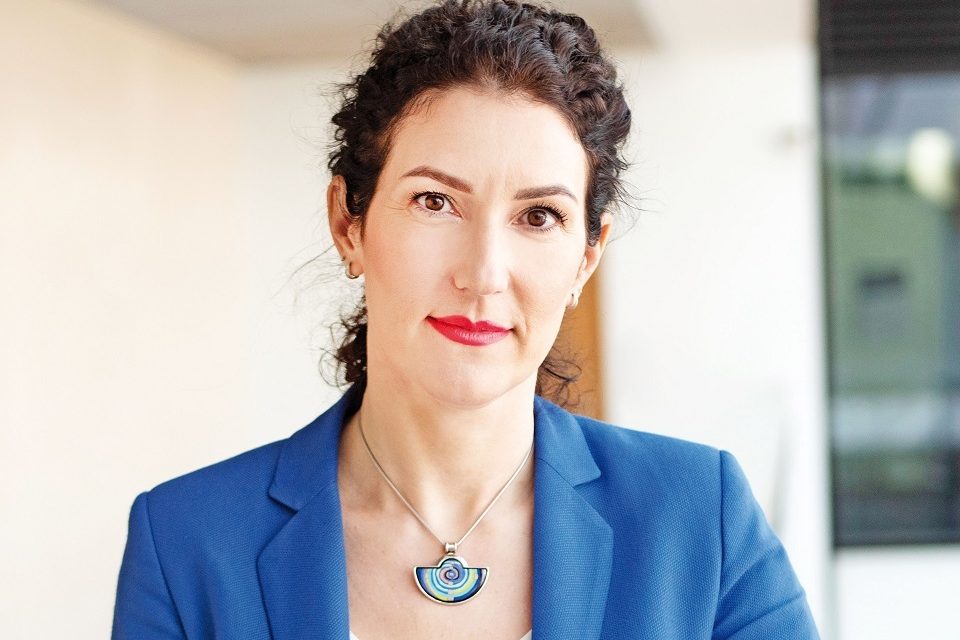Romanians are among the most open Europeans to adopt the hybrid way of working, study shows

Romanians are among the most open Europeans to adopt the hybrid way of working, with 49% compared to the European average of 41%, but only 23% of them consider that online education works properly, the lowest percentage in Europe, where the average is 45%, according to the pan-European study “L’Observatoire Cetelem de la Consommation”.
Currently, Romanians are among the most open Europeans to adopt the hybrid way of working (49% compared to the European average of 41%) and only 19% would continue to work exclusively from home (vs. the European average of 22%).
The study was conducted in 15 countries in the European Union, including Romania, on a number of 14,200 respondents, says in a statement BNP Paribas Personal Finance. It aims to monitor the impact of the pandemic context on Europeans’ consumer behavior and their perception of the “remote” lifestyle accelerated by the pandemic and its influence on social life. Although consumption was negatively affected, the intention to save increased by 3 percentage points across Europe. More than half of Europeans say this (54%), Romanians being the most categorical, although the percentage remained constant compared to last year, 69% of Romanians surveyed expressing this intention. However, the highest growth towards savings from one year to the next is also observed among Italians (increase by 11 pp, up to 51%), followed by the English (increase by 6 pp, up to 63%) and French (growth by by 5 pp, up to 40%).
In terms of purchasing power, 46% of Europeans believe that it has remained stable, an increase of 2 percentage points compared to last year.
At the same time, there is an increase of 5 percentage points (37%) in those who say that their purchasing power has decreased in the last year. As for Romanians, the perception that it has deteriorated is among the highest in Europe, with only 21% of Romanians saying that their purchasing power has increased in the last year. Regarding the opinion about the general situation in their country, the trend is unanimously a negative one, in all 15 states participating in the study, in fact the lowest score from 2015 to date (4.7 points average in Europe in 2021) .
Romanians remain, as in the previous year, among the most pessimistic in Europe, valuing with only 4.2 points out of 10 the situation locally.
Distance life has become a global reality, which is reflected in both the way we carry out daily activities and interpersonal relationships. However, this lifestyle, which has accelerated the adoption of digital solutions as an alternative to the lack or limitation of human interactions, is not universally accepted among Europeans.
Although 8 out of 10 believe that distancing is now part of their daily life, only 45% really enjoy this new way of life. Romanians are among the most categorical in not showing too much openness to this lifestyle, like the rest of Eastern European countries, looking at it rather as an accumulation of constraints and only 18% of them declare themselves followers of his.
“After more than a year of pandemic, it was easy to anticipate a change in behavior, perceptions and life in general for Europeans. This edition of L’Observatoire Cetelem de la Consommation shows that in people’s opinion the limitation of interactions also interferes with And when we talk about life at a distance, including from a social point of view, most alternatives are seen as coercive, with three-quarters of Europeans saying that a lack of direct interaction is detrimental to human relationships. “And Romanians are no exception, being among the most resistant to following this remote lifestyle, 8 out of 10 feeling compelled to adapt to all these changes,” said Miruna Senciuc, CEO of BNP Paribas Personal Finance SA Branch Bucharest.
A clear conclusion of the study is that the way people perceive life at a distance and commit to following it depends on a variety of factors, such as the degree of experience in their use, culture and economic power.
Thus, the Nordic countries are much more familiar with such technologies and have a high degree of maturity in their use. The countries of Southern Europe and the Mediterranean, where a less stable economic climate predominates, frequently associate remote solutions with positive terms and consider that they have not used them as often as respondents in many countries.
In Eastern European countries, there are mixed opinions and a certain balance between positive and negative about these alternatives. These are countries that already used digital technologies, but which have witnessed their rapid development in recent years.
Before the pandemic, Romania was among the European countries with the lowest proportion of employees working outside the actual workspace or office. Currently, Romanians are among the most open Europeans to adopt the hybrid way of working (49% compared to the European average of 41%) and only 19% would continue to work exclusively from home (vs. the European average of 22%).
Regarding the online education, only 23% of Romanians consider that the trend is positive in their country, by far the lowest percentage in Europe (European average 45%).
Respondents in Sweden, where this method of education is widespread, are by far the most convinced of its effectiveness (68%), followed by those in the UK (57%) and Spain (51%). On the other hand, among the most critical of the way online education works in the country, along with Romanians, are Slovaks (31%) and Bulgarians (36%).
Starting 2018, Cetelem IFN SA became – BNP Paribas Personal Finance SA Paris Bucharest Branch, as a result of the strategic cross-border merger between Cetelem IFN SA and the French parent bank BNP Paribas Personal Finance. After the completion of the merger process, the commercial activity in Romania continued under the Cetelem brand, known to the Romanian consumer credit public. The company continues to provide in-store consumer credit services, credit cards, car loans, personal loans, either at the point of sale or remotely, by phone or Internet. In the more than 14 years since it has been present on the Romanian market, Cetelem has granted over 1.8 million loans.












